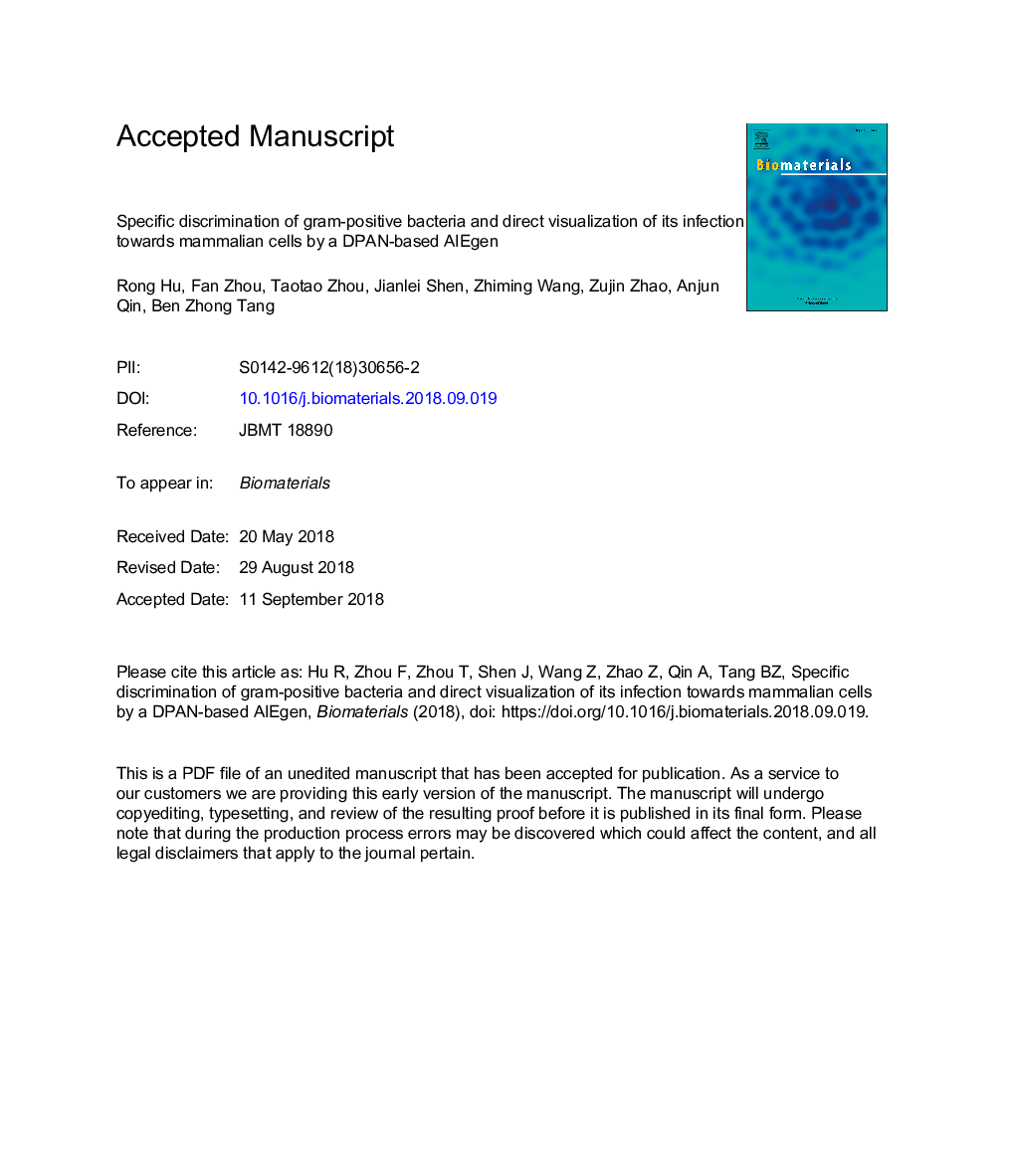| Article ID | Journal | Published Year | Pages | File Type |
|---|---|---|---|---|
| 11016692 | Biomaterials | 2018 | 23 Pages |
Abstract
The infections caused by gram-positive bacteria (G+) is a major threat to public health due to their high morbidity and mortality, and the identification of G+ with high sensitivity and selectivity is urgently desirable. In this paper, a probe with aggregation-induced emission (AIE) characteristic is developed and used to discriminate G+ from other bacteria and fungus with excellent selectivity. Thanks for its AIE feature, this probe shows intense fluorescence when interacted with G+, and the signal can last for 24â¯h after incubating with S. aureus, which is benefit for long term tracing of translocation process with high contrast. Moreover, this probe can be used to visualize the infection processes of G+ towards mammalian cells, which provides valuable information for understanding the therapeutic mechanism.
Related Topics
Physical Sciences and Engineering
Chemical Engineering
Bioengineering
Authors
Rong Hu, Fan Zhou, Taotao Zhou, Jianlei Shen, Zhiming Wang, Zujin Zhao, Anjun Qin, Ben Zhong Tang,
